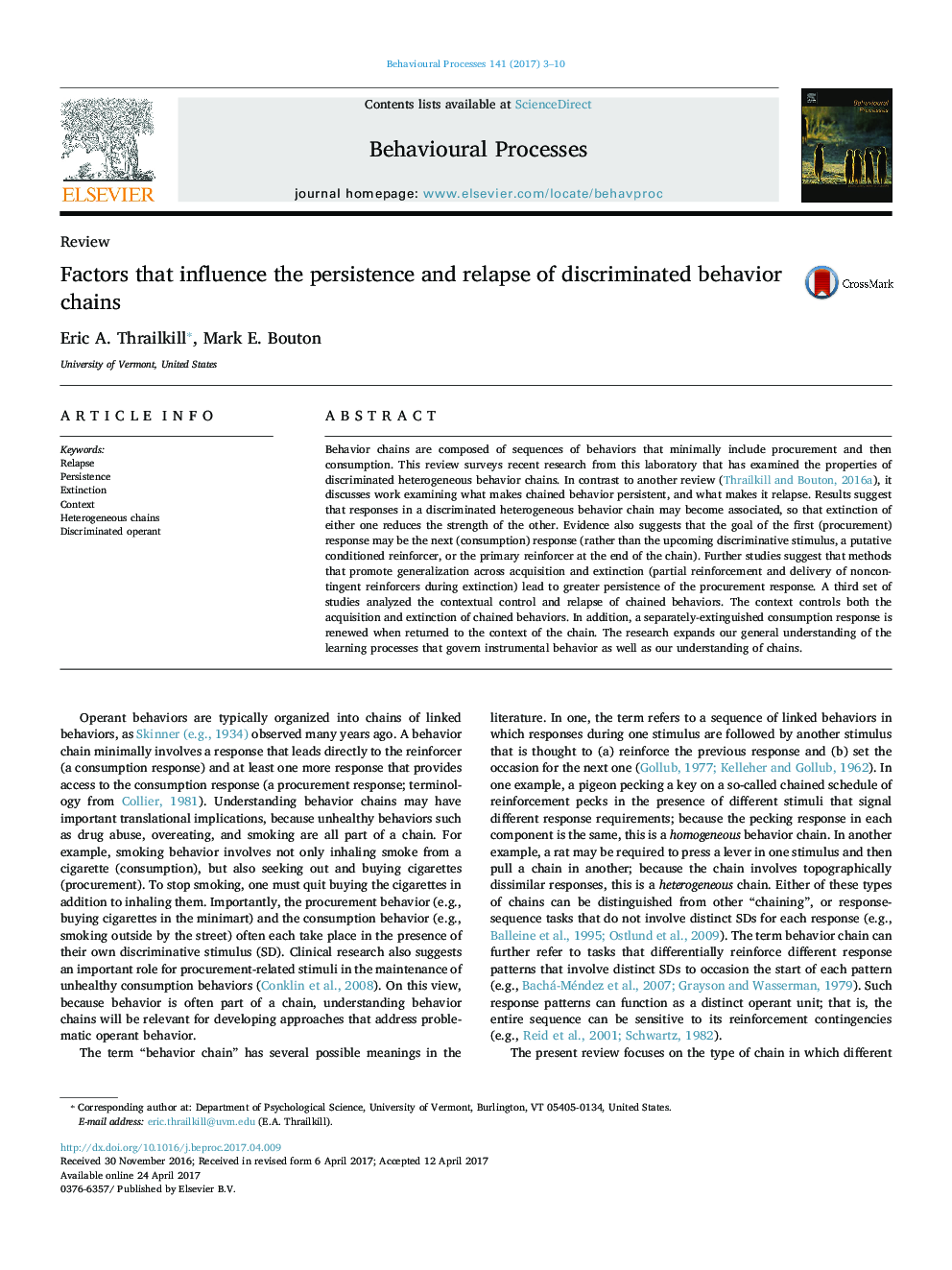| Article ID | Journal | Published Year | Pages | File Type |
|---|---|---|---|---|
| 5539614 | Behavioural Processes | 2017 | 8 Pages |
â¢Operant behavior consists of chains of linked procurement and consumption responses.â¢Chained behaviors are associated, and procurement is motivated by the opportunity to make the consumption response.â¢Persistence in extinction depends on generalization across training and extinction conditions.â¢Contexts control chained behaviors before and after extinction, where they can influence relapse.
Behavior chains are composed of sequences of behaviors that minimally include procurement and then consumption. This review surveys recent research from this laboratory that has examined the properties of discriminated heterogeneous behavior chains. In contrast to another review (Thrailkill and Bouton, 2016a), it discusses work examining what makes chained behavior persistent, and what makes it relapse. Results suggest that responses in a discriminated heterogeneous behavior chain may become associated, so that extinction of either one reduces the strength of the other. Evidence also suggests that the goal of the first (procurement) response may be the next (consumption) response (rather than the upcoming discriminative stimulus, a putative conditioned reinforcer, or the primary reinforcer at the end of the chain). Further studies suggest that methods that promote generalization across acquisition and extinction (partial reinforcement and delivery of noncontingent reinforcers during extinction) lead to greater persistence of the procurement response. A third set of studies analyzed the contextual control and relapse of chained behaviors. The context controls both the acquisition and extinction of chained behaviors. In addition, a separately-extinguished consumption response is renewed when returned to the context of the chain. The research expands our general understanding of the learning processes that govern instrumental behavior as well as our understanding of chains.
